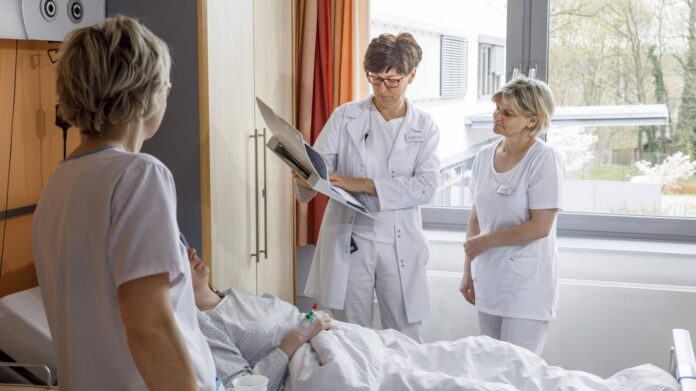
A few days before the state elections, doctors, dentists, hospitals and pharmacists in Brandenburg have warned of a threat to health care in the state due to shortage of skilled workers warned.
“A lack of young talent and increasing state influence will endanger the dental care of up to 600,000 people in the state of Brandenburg in the near future,” said the chairman of the Association of Statutory Health Insurance Dentists, Dr. Eberhard Steglich, on Monday at the Brandenburg state press conference. A dental degree program is needed at the new “Medical University of Lausitz – Carl Thiem“ (MUL) in Cottbus.
The president of the state medical association, Dipl.-Med. Frank-Ullrich Schulz, also explained that medical care in the state is in danger. Brandenburg is one of the states with the lowest density of contracted doctors in Germany. There are 732 residents per contracted doctor. The national average is 597 residents per doctor. And without foreign doctors, comprehensive medical care in the state is no longer possible: 17.8 percent of all doctors in Brandenburg have foreign citizenship.
We have neglected medical training in the country for too long.
Frank-Ullrich SchulzPresident of the State Medical Association
“We have neglected medical training in the state for too long,” says Schulz. But even after the establishment of the Brandenburg Medical School (MHB) and the founding of the MUL, there are still problems. “The students at the MHB are worried that the state’s research funding could be withdrawn,” said Schulz. “We hope that the state’s funding of this university will continue after the elections.”
17.8
percent of all doctors in Brandenburg have a foreign citizenship.
The managing director of the State Hospital Association, Stefan Jacobs, stressed that Brandenburg had made more investment funds available for hospitals than any other federal state in the current legislative period, with around 200 million euros per year. “That is the scale that we will continue to need,” said Jacobs. “That must be made permanent.”
Jacobs stressed that the country’s clinics are also important for the training of nursing staff. Nursing schools are often linked to hospitals, and practical training takes place there. It is also important that hospital planning, unlike in the reform of Federal Minister of Health Prof. Karl Lauterbach planned, remains a matter for the states. “This is the only way to secure and transform the locations in an already thinned-out supply.”
Speaking for the Chamber of Pharmacists, its second vice president, Katrin Wolbring, said that the training of pharmaceutical technical assistants (PTAs) in Brandenburg is without secure funding. The state only contributes to the financing of the running costs of the only training facility in Eisenhüttenstadt. “The school relies on donations if it wants to purchase something.” In addition, Brandenburg is the only federal state without a pharmacy degree program. Efforts have been made to do so for 15 years. But at least there seems to be hope in this area. “We hope that something will happen at the MUL in the next few years.”
